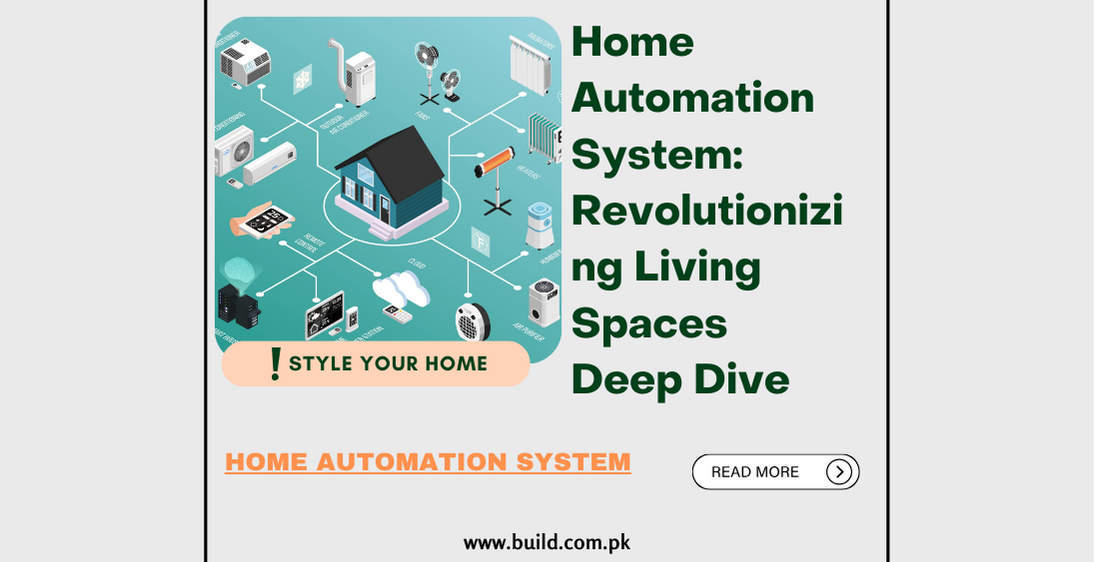Home Automation System: Revolutionizing Living Spaces Deep Dive

Introduction:
In the era of smart living, where technology seamlessly
integrates with our daily routines, home automation systems stand at the
forefront of innovation. These systems, often referred to as smart homes,
promise an unprecedented level of convenience, efficiency, and security. Join
us on an immersive journey as we unravel the intricate layers of home
automation, exploring its evolution, diverse applications, benefits,
considerations, and the transformative impact it has on modern living spaces.
Evolution of Home Automation:
The concept of home automation, once a futuristic dream
portrayed in science fiction, has transitioned into a tangible reality. The
evolution of technology, particularly the rise of the Internet of Things (IoT),
has paved the way for interconnected devices and systems that can be seamlessly
controlled and monitored, giving birth to the era of smart homes.
Diverse Applications
Smart Lighting Systems:
Smart lighting systems offer dynamic control over lighting
ambiance, energy efficiency, and even color schemes. Users can adjust
brightness levels, set schedules, and create personalized lighting scenes,
enhancing both aesthetics and energy conservation.
Home Security and Surveillance:
Integrated security systems empower homeowners with real-time
monitoring, surveillance, and remote control of security features. Smart
cameras, motion detectors, and smart locks contribute to a comprehensive
security infrastructure, providing peace of mind whether residents are at home
or away.
Climate Control:
Smart thermostats and climate control systems allow users to
regulate temperature settings, humidity, and ventilation with precision. These
systems adapt to user preferences, optimize energy consumption, and can be
controlled remotely via mobile devices.
Audio-Visual Integration:
Home automation extends to the realm of entertainment, where
audio-visual systems seamlessly integrate. From voice-controlled smart TVs to
multi-room audio setups, homeowners can curate immersive and personalized
entertainment experiences.
Smart Kitchen Automation:
Smart kitchen appliances, such as refrigerators, ovens, and
coffee makers, bring automation to culinary spaces. These devices offer
features like remote control, recipe suggestions, and energy-efficient modes,
streamlining daily kitchen activities.
Automated Window Treatments:
Automated window treatments, including smart blinds and
curtains, enable users to control natural light levels, enhance privacy, and
optimize energy efficiency. Integration with sensors and schedules allows for
intelligent adjustment throughout the day.
Benefits of Home Automation
Enhanced Energy Efficiency:
One of the primary advantages of home automation is the
potential for increased energy efficiency. Smart systems optimize resource
usage, from lighting and climate control to appliance management, contributing
to a more sustainable and eco-friendly lifestyle.
Convenience and Time-Saving:
Home automation simplifies daily tasks, providing
unparalleled convenience. Whether it's adjusting settings with a voice command,
automating repetitive routines, or remotely controlling devices, homeowners can
reclaim valuable time and enjoy a more seamless lifestyle.
Increased Security and Safety:
The integration of security features, including smart
cameras, doorbell cameras, and smart locks, enhances home safety. Real-time
monitoring and remote access contribute to increased security, providing
homeowners with a sense of control and peace of mind.
Personalization and Customization:
Home automation systems are designed for personalization,
allowing users to tailor their living spaces to match their preferences. From
lighting scenes to climate control settings, the ability to customize the home
experience adds a layer of individuality to each residence.
Considerations and Challenges
Compatibility and Integration:
As the market offers a multitude of smart devices, ensuring
compatibility and seamless integration can be a challenge. Choosing devices
that operate within the same ecosystem or offer robust compatibility is crucial
for a cohesive home automation experience.
Cybersecurity Concerns:
The interconnected nature of smart homes introduces
cybersecurity considerations. Protecting devices from potential vulnerabilities
and ensuring robust security protocols are in place are essential aspects of
maintaining a secure digital living environment.
Initial Investment:
The upfront cost of implementing a comprehensive home
automation system can be a significant consideration for homeowners. While the
long-term benefits in terms of energy savings and convenience are evident, the
initial investment may pose a financial challenge for some.
The Future of Home Automation:
As technology continues to advance, the future of home
automation holds exciting possibilities. Integration with artificial
intelligence (AI), increased device interoperability, and the development of
even more intuitive interfaces are poised to further revolutionize the smart
home landscape.
Conclusion:
In the tapestry of modern living, home automation stands as a transformative force, reshaping the way we interact with our living spaces. From increased energy efficiency and enhanced security to personalized comfort and convenience, the benefits of home automation are undeniable. As we navigate the evolving landscape of smart homes, it becomes clear that the integration of technology into our living environments is not just a convenience but a paradigm shift towards a more connected, efficient, and intelligent way of life. The journey into home automation is an exploration of possibilities, where every automated device becomes a brushstroke in the canvas of a smarter, more vibrant tomorrow.









